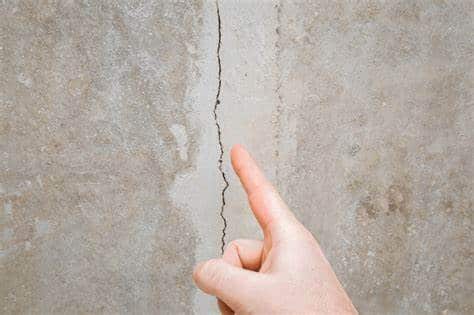What Causes Cracks In Concrete In Poway Ca?
 Concrete is the cornerstone of modern construction, an omnipresent material known for its durability and strength. However, despite its resilience, concrete is not impervious to damage, with cracks being one of the most common issues. Understanding the factors that cause concrete to crack is essential for both preventing damage and making effective repairs. Here are five critical factors that contribute to cracking in concrete:
Concrete is the cornerstone of modern construction, an omnipresent material known for its durability and strength. However, despite its resilience, concrete is not impervious to damage, with cracks being one of the most common issues. Understanding the factors that cause concrete to crack is essential for both preventing damage and making effective repairs. Here are five critical factors that contribute to cracking in concrete:
- Concrete shrinks as it cures. This shrinkage is a result of the water within the concrete mix evaporating as the concrete hardens. As water leaves the concrete, the material contracts, which can lead to the formation of cracks if the contraction is restricted or uneven. This is particularly common in larger slabs, where the surface can dry and shrink more quickly than the underlying layers, leading to tension that causes cracks.
- Temperature changes can cause concrete to expand and contract. Concrete expands when it gets hot and shrinks when it cools down. If the concrete is restrained in any way, for instance by soil or adjacent structures, this can create stress within the concrete. Over time, as the concrete goes through repeated cycles of heating and cooling, this stress can lead to cracking.
- Concrete is designed to withstand specific loads, and when it is subjected to weight beyond its capacity, it can crack. Overloading can occur from heavy equipment, vehicles, or even an accumulation of snow or water. If the concrete has not been properly designed to distribute these loads, or if it has been weakened by other factors, then overloading can easily cause it to crack.
- Poor construction techniques can lead to a host of problems, including cracks in concrete. This can include inadequate compaction of the subgrade, improper placement of joints, insufficient curing time, or incorrect mix proportions. Skilled construction practices are critical to ensuring the integrity of concrete, and any shortcuts or errors during the installation process can compromise its structural integrity.
- Concrete can also be damaged by chemical reactions. One of the most common is the reaction between alkalis in the concrete and reactive silicas in aggregate, known as alkali-silica reaction (ASR). This can lead to expansion and cracking. Additionally, exposure to aggressive chemicals, such as acids or salts, can cause deterioration and cracking in concrete over time.
FAQs
Can Cracks In Concrete Be Completely Avoided?
While it is challenging to avoid all cracking in concrete due to its nature, employing best practices in mixing, curing, and placement can minimize the occurrence and severity of cracks.
What Are Control Joints And How Do They Help Prevent Cracks In Concrete?
Control joints are pre-planned fractures incorporated into concrete slabs to control the location of cracking caused by dimensional changes. By allowing concrete to expand and contract at controlled points, these joints reduce the stress in the concrete slab and thus help prevent random cracking.
Is It Possible To Repair Concrete Cracks, And Will They Affect The Structural Integrity Of The Concrete?
Yes, it is possible to repair concrete cracks, and various methods can be used depending on the crack’s size and cause. Small, non-structural cracks can often be repaired for aesthetic reasons or to prevent water infiltration. Structural cracks, which can affect the integrity of the concrete, may require more extensive repair techniques. It is essential to identify the underlying cause of the cracks to choose the appropriate repair method and prevent further damage.
Conclusion
Cracks in concrete are often the result of a combination of factors, including physical constraints, environmental conditions, and human error. By understanding these causative elements, engineers and construction professionals can better design and maintain concrete structures to resist cracking. Strategies such as proper material selection, careful construction practices, and preventative measures like control joints can mitigate the risk of cracking. However, even with the best practices, some cracking may be inevitable due to concrete’s inherent properties. For more information, contact Concrete Contractor Poway Ca at (858) 683-6565.